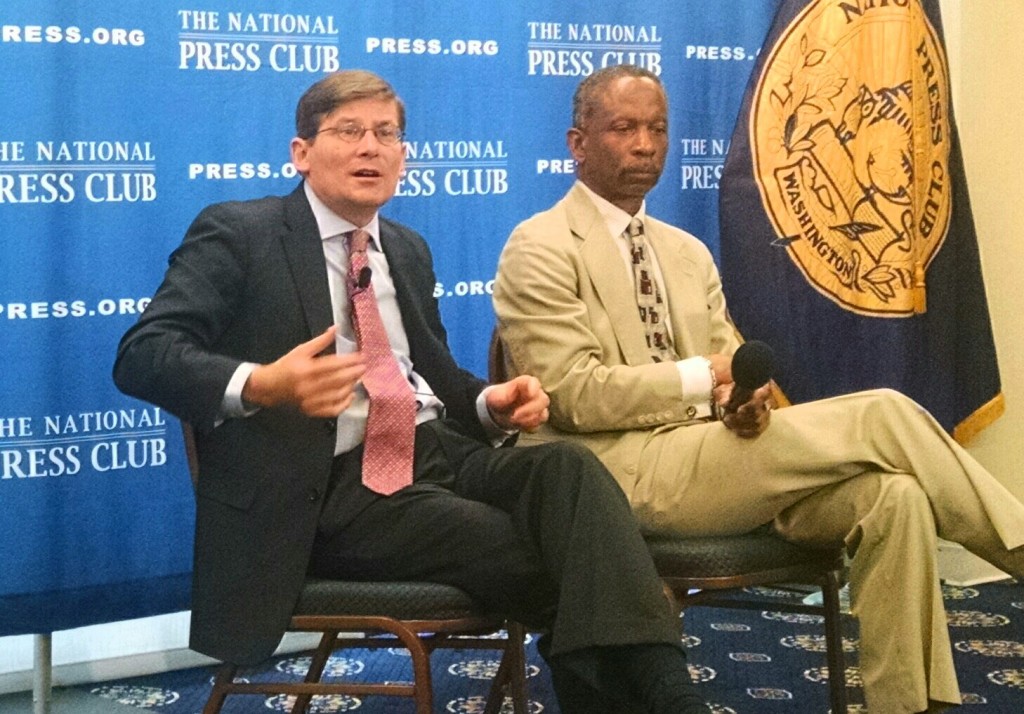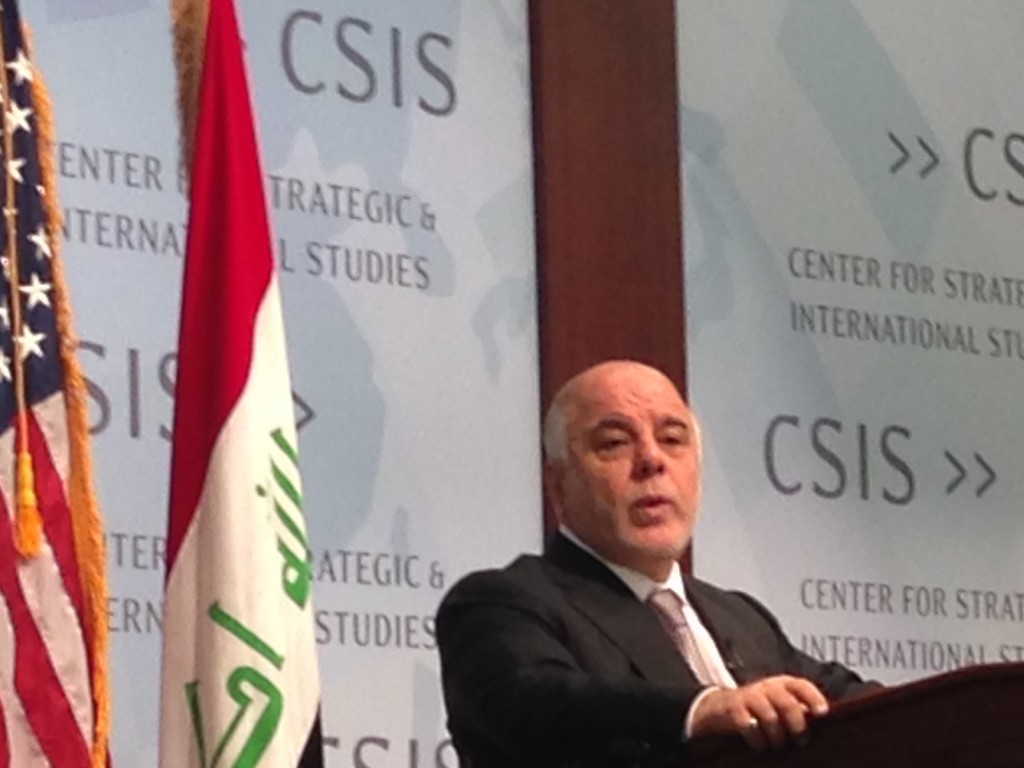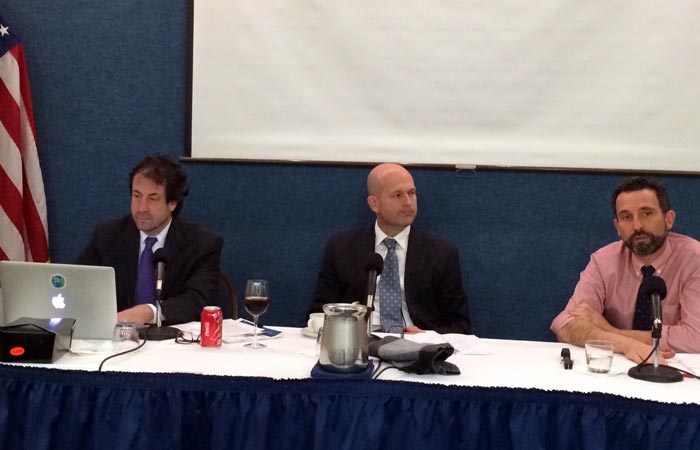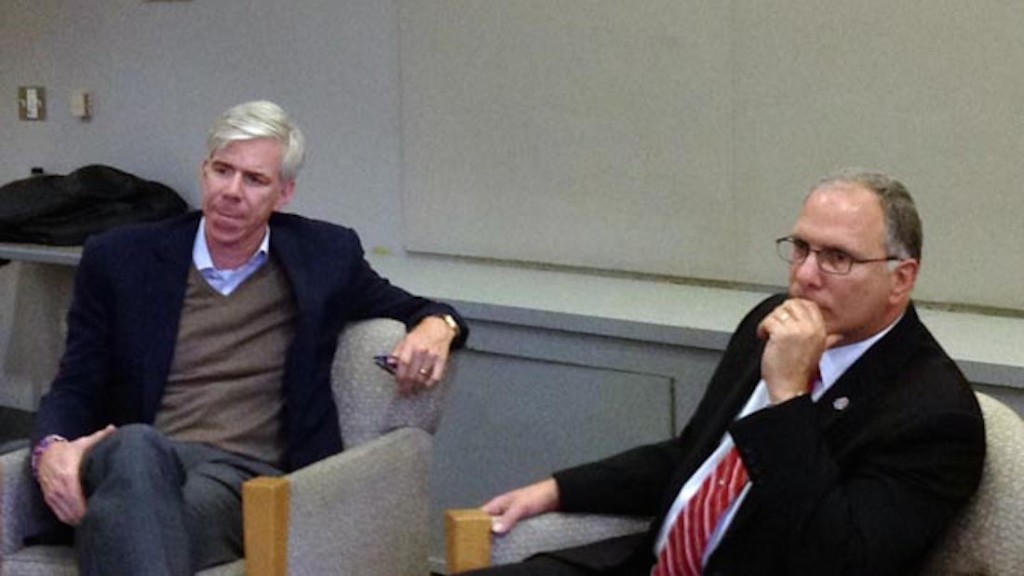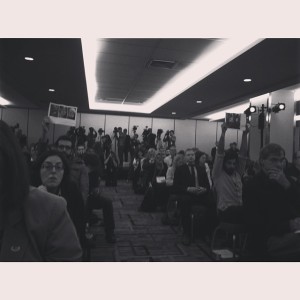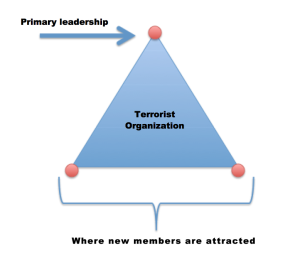WASHINGTON—Amid the furor currently surrounding the Islamic State group, the US has remained more or less on the sidelines. There are no coalition boots on the ground, Western, Gulf Arab or otherwise. Barrel bombs and chlorine gas have been used to call President Barack Obama’s “red line” bluff. Perhaps, as some American officials have argued, this is an Arab war, to be fought and won by Arabs. It must be this way, they say, lest ISIS and its extremist brethren use American soldiers on Arab ground as a recruiting tool.
And while all of this rhetoric plays well with non-interventionists and probably is the wisest policy route, that doesn’t mean that the decision to stand by is easy, especially when one considers the probable fate of one of the region’s oldest peoples, the Christians. Also known as Assyrians or, in some contexts, Chaldeans, many of them have been expelled from their homes in Mosul and northern Iraq.
Assyrians are a Semitic Christian people whose ancient homeland reaches from Turkey to Iran. Their mother tongue is Aramaic, the language spoken by Jesus of Nazareth. Because their presence in the Near East predates the Arab settlement of the region, most Assyrians will, with irrepressible pride, tell you that they are the indigenous people of ancient Mesopotamia.
“It goes back a very long time. Assyrians were at the very center of the cradle of civilization,” said Peter Bityou, director of the Assyrian Aid Society of America.
Bityou was born in Iraq and left for the United States in 1982 to look for work as an engineer. Many of his relatives —including his brother— remain in Iraq to this day and have been displaced by ISIS’s ongoing campaign. Since early 2014, Bityou and the AASA have been instrumental in delivering food, water, kerosene, clothing, medicine, gas stoves, generators, mattresses, blankets and other essentials to the refugees struggling to rebuild their lives.
The AASA and other aid groups must help, Bityou said, because no one else will. Assyrians in Iraq have been abandoned by the central Iraqi government and, in general, are not treated well by the Kurdish Regional Government in the north, he said. While the Kurdish peshmerga, or military force, allows Assyrian refugees to cross into their territory, those fleeing violence are not provided with food or other essentials.
“No one is looking out for the Assyrians. That’s why we have to do for ourselves,” Bityou said.
Martin Youmaran, an executive director of the Assyrian American National Federation, sees ISIS’s persecution of Assyrians as part of a larger pattern of racist oppression and disenfranchisement that goes back many hundreds of years.
“In Iraq, the Assyrian people have faced continuous persecution,” Youmaran said.
Historical fact largely supports that narrative. While Assyrians have peacefully coexisted with their Muslim Arab neighbors for centuries, to say that they were treated well would be a conceptual stretch. Under the Seljuqs and the Ottomans, Assyrians were given three options: convert to Sunni Islam, pay a tax (known as jizia) or face expulsion and possible death. Ottoman discrimination against Christians became so severe that, during World War I, the nationalist government killed 1.5 million Armenians, Greeks and Assyrians —all Christian subjects of the empire.
The treatment of Assyrians during the 1960s and 1970s under the Iraqi Ba’ath Party varied widely. Ba’athist ideology stressed secularism and sought to brush aside religious differences in the service of national unity; Islamic extremism was largely kept at bay. Many Assyrians ascended to high levels of power within the Iraqi government, including Tariq Aziz, a former deputy prime minister who was also one of Saddam Hussein’s closest advisors.
Assyrian expressions of ethnic pride however, met with severe repression.
“People will say that under Saddam, Assyrians were not persecuted. But Saddam hanged three Assyrian nationalists,” said Bityou, referring to the executions of Youbert Shlimon, Youkhana Esho Jajo and Yousip Hermis, who were put to death without trials in 1985.
“What can you call that other than persecution?” Bityou asked.
Saddam’s relationship with Iraq’s many ethnic and religious minorities worsened in the late 1980s, when Kurdish peshmerga forces rebelled against the government. Faced with a secession campaign, the government used conventional weapons alongside unidentified chemical agents —most likely the nerve gas sarin mixed with mustard gas— to eradicate entire villages; according to Human Rights Watch, nearly 2,000 Assyrians perished from gas alone.
Iraqi Assyrians fared even worse after the 2003 American invasion. By 2004, Islamic terrorist groups like Ansar al-Islam and al-Qaeda in Iraq were blowing up Assyrian churches and enforcing hardline sharia law on Assyrian Christian communities. Many Assyrians sought refuge in Turkey, Europe, Syria and the United States.
“In 2003, there were 1.2 million Assyrians in Iraq. Today, less than 300,000,” Bityou said.
ISIS has continued the violence instigated by its predecessors, expelling and in some cases kidnapping Assyrians along the Iraqi-Syrian border.
Due to the escalating violence, Youmaran and the AANF are more insistent than ever. Among their most pressing concerns: military intervention against ISIS.
“We want intervention not only from the US but from the UN under Chapter Seven,” Youmaran said, referring to the section of the United Nations Charter that gives the UN Security Council the power to intervene to stop crimes against humanity.
Beyond a foreign offensive against ISIS, Assyrian groups have renewed calls for an autonomous Christian homeland in Iraq’s Nineveh Governorate, known as Nīnwē to the Assyrians.
“We need an internationally protected homeland,” Youmaran said. “We demand that the international community preserve it [the Assyrian homeland in Nineveh], because the Iraqi government cannot.”

